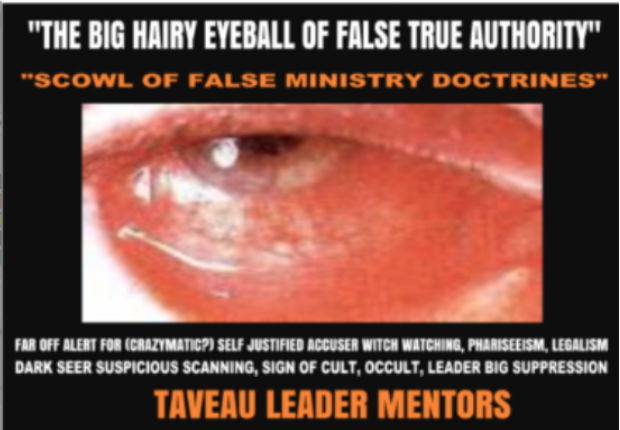
THE RIGHT TO EXPOSE THE FAMOUS,AREA
CHRISTIAN MINISTER
“Inquiring Minds Want To Fully Know”
“God’s love covers a multitude of sins” Versus
St Paul Ephesians 5:11 “reprove works of darkness’
(C)2025 Taveau D’Arcy All copyrights reserved under international copyright laws

In More Noble Years The 3 Musketeers: “One for All, All for One”
Christian Modern Now The 3 Stooges: “All for One, One for All, and Every man for Themself”
“Who put the ELF in Selfie?” Dr. T 2018
Dr T reminds the reader:
This is minister, elder, leaders ” motives and mindsets” “methods”
and many “voices” and authority “tones”
One key Bible verse that advises against exposing another person’s sins publicly is
Proverbs 17:9 (KJV):
“He that covereth a transgression seeketh love;
but he that repeateth a matter separateth very friends.”
This verse suggests that love seeks to cover or forgive sins rather than broadcast them, while repeatedly bringing up offenses causes division.
Another relevant passage is Matthew 18:15 (KJV), which gives a clear biblical process for addressing sin:
“Moreover if thy brother shall trespass against thee, go and tell him his fault between thee and him alone: if he shall hear thee, thou hast gained thy brother.”
Jesus instructs believers to address sins privately first, rather than exposing them publicly. Only if the person refuses to listen does the matter escalate to a wider audience (Matthew 18:16-17).
1. Proverbs 11:13 (KJV)
“A talebearer revealeth secrets: but he that is of a faithful spirit concealeth the matter.”
-
This warns against gossip and revealing private matters, emphasizing faithfulness in keeping confidences.
2. Proverbs 25:9-10 (KJV)
“Debate thy cause with thy neighbour himself; and discover not a secret to another: Lest he that heareth it put thee to shame, and thine infamy turn not away.”
**Aside: as the KJV of this is difficult, I add both of these translations of Proverbs 25:9-10 Amplified Bible (AMP) and English Standard Version (ESV):
Proverbs 25:9-10 Amplified Bible (AMP)
9 Argue your case with your neighbor himself [before you go to court];
And do not reveal another’s secret,
10 Or he who hears it will shame you
And the rumor about you [and your action in court] will have no end.
Proverbs 25:9-10 English Standard Version (ESV)
9 Argue your case with your neighbor himself,
and do not reveal another’s secret,
10 lest he who hears you bring shame upon you,
and your ill repute have no end.
- This passage emphasizes handling disputes privately and not exposing others’ secrets, as it can lead to shame and lasting damage to one’s reputation.
-
Publicly exposing someone’s secrets can lead to shame for both parties.
-
This encourages handling disputes privately and warns that publicly exposing someone’s secrets can lead to shame for both parties.
3. 1 Peter 4:8 (KJV)
“And above all things have fervent charity among yourselves: for charity shall cover the multitude of sins.”
-
Love seeks to cover sin (not in the sense of enabling it but rather addressing it with grace and mercy).
4. Galatians 6:1 (KJV)
“Brethren, if a man be overtaken in a fault, ye which are spiritual, restore such an one in the spirit of meekness; considering thyself, lest thou also be tempted.”
-
This verse emphasizes restoration rather than public humiliation, warning against self-righteousness.

NAMING CHRISTIAN NAMES: OUT IN PUBLIC OR IN PRIVATE
According to biblical teaching, the responsibility to call out and address the sins of an elder in Christian ministry is not vested in just any individual or group. Instead, it follows a defined, church-based process intended to promote restoration rather than public shaming.
1. Private Confrontation by a Fellow Believer
Matthew 18:15 (KJV) teaches that if a believer sins, the first step is to speak to them privately:
“Moreover if thy brother shall trespass against thee, go and tell him his fault between thee and him alone:”
-
This indicates that a fellow Christian who is directly concerned should address the issue privately before it becomes a matter of public record.
2. Escalation to Church Leadership
If private confrontation does not lead to repentance, Matthew 18:16-17 (KJV) instructs to involve one or two others:
“But if he heed not, tell it unto the church: but if he heed not even the church, let him be unto thee as an heathen and a publican.”
-
This process implies that the issue should be raised within the local church context, where the gathered body of believers, and ultimately the leadership (elders), can address the sin.
3. Accountability of Church Elders
For elders specifically, 1 Timothy 5:19-20 (KJV) advises caution and proper evidence before any public rebuke:
“Against an elder receive not an accusation, but before two or three witnesses. Them that sin rebuke before all, that others also may fear.”
-
This passage underscores that any call-out must be handled carefully, with verified evidence and in accordance with established church discipline, rather than by strangers or external parties.
Conclusion
The Bible directs that only fellow believers—ideally those within the church leadership or designated accountability groups—have the authority to address the sin of an elder. This ensures that the matter is handled with the intent of restoration, in line with biblical procedures, rather than through external, potentially divisive gossip or media sensationalism.

ASKING: Is It a Noble, God-Called Mission to Expose Fellow Christians in Scandal Videos and Podcasts, MANY ARTICLES?
The modern trend of Christian scandal-exposing channels, podcasts, and viral video clips claiming to serve God by exposing sins—especially of high-ranking elders, pastors, and ministers—is deeply questionable from a biblical perspective.
This practice often involves:
-
Leaked audio or video clips, taken without context
-
Public humiliation rather than biblical correction
-
Guilt by association or misrepresented private moments
-
Mockery and monetization of scandals
So, is this a noble, God-ordained calling—or a worldly, flesh-driven practice?
1. The Nature of a God-Called Mission
A. God Calls for Restoration, Not Destruction
-
Galatians 6:1 (KJV) – “Brethren, if a man be overtaken in a fault, ye which are spiritual, restore such an one in the spirit of meekness.”
++ True godly correction aims for RESTORATION, not entertainment, humiliation, or viral fame. -
Matthew 18:15-17 (KJV) – Jesus’ process of correction is private first, public only if necessary.++ These gossip ministries skip the private step and rush to public exposure for views.
B. Biblical Examples of Private Sin Handling
-
Noah’s Sin and Ham’s Dishonor
-
Genesis 9:20-27 (KJV) – Noah was drunk and exposed. Ham spread the news instead of covering his father’s shame.
-
His brothers, Shem and Japheth, covered him without looking.
-
Ham was cursed for dishonoring his father.
++ Lesson – Exposing a leader’s private sin instead of handling it with discretion brings judgment, not blessing.
-
-
David and Saul
-
1 Samuel 24:6 (KJV) – “The LORD forbid that I should do this thing unto my master, the LORD’s anointed, to stretch forth mine hand against him.”
-
Even when Saul was unrighteous, David refused to attack or expose him.++ Lesson – Even an unrighteous leader is in God’s hands, not ours, for judgment.
-
2. Airing Leaked Clips, Secret Videos – Biblical or Slander?
A. God Hates Secret Whispers & Spying on Others
-
Proverbs 6:16-19 (KJV) – God hates those who “sow discord among brethren.”
-
Proverbs 11:13 (KJV) – “A talebearer revealeth secrets: but he that is of a faithful spirit concealeth the matter.”
++ Leaking private recordings and exposing ministers is gossip, not discernment.
B. Satan is Called ‘The Accuser of the Brethren’
-
Revelation 12:10 (KJV) – Satan is the one who accuses God’s people day and night.
++ Are these exposé ministries acting like Christ—or like Satan, the Accuser?
3. The Hypocrisy of Scandal-Based Ministries
A. Those Who Expose Others Often Fall Themselves
-
Matthew 7:3-5 (KJV) – Jesus warns against focusing on others’ sins while ignoring personal faults.
-
Romans 2:1 (KJV) – “Thou that judgest doest the same things.”
++ Many Christian YouTubers and influencers who attacked others have later been exposed themselves.
B. Profiting Off of Scandal
-
Many of these channels monetize their content—is this righteous correction or profiting off gossip?
-
1 Timothy 6:5 (KJV) warns against those who see godliness as gain (profit).
++ True prophetic ministry does not operate like a Christian TMZ gossip business.
4. How Should Christians Respond to a Fallen Leader?
A. If They Are in Unrepentant Sin
-
Follow Matthew 18:15-17 (KJV) – Go to them privately first.
-
1 Timothy 5:19-20 (KJV) – Public rebuke should only happen with multiple witnesses (not secret leaked clips).
B. If They Have Already Repented
-
Isaiah 43:25 (KJV) – “I, even I, am he that blotteth out thy transgressions, and will not remember thy sins.”
++ If God has forgiven a 25-year-old sin, why are Christians still exposing it? -
Micah 7:18-19 (KJV) – “He will cast all their sins into the depths of the sea.”
++ Are scandal exposé ministries fishing sins out of the sea that God already forgave?
Final Conclusion: Scandal Exposure Ministries Are NOT a Noble, God-Called Work
-
They act like modern-day Pharisees – focusing on public shame rather than biblical restoration.
-
They operate like worldly gossip media – using scandal for views, likes, and monetization.
-
They break biblical protocol – skipping private correction and rushing to public judgment.
-
They fall into the sin of slander and talebearing – which the Bible clearly condemns.
-
They do not reflect Christ’s heart – He sought repentance and restoration, not public destruction.
++ A true God-called ministry does not thrive on Christian TMZ-style gossip, but on biblical truth, love, and restoration.
James 2:13 (KJV)
“For he shall have judgment without mercy, that hath shewed no mercy; and mercy rejoiceth against judgment.”
++ Final Thought: Those who expose others without mercy will be judged without mercy themselves.

Ephesians 5:11 What IS and IS NOT Bible openly “reproving works of darkness”
Ephesians 5:11 (KJV) reads:
“And have no fellowship with the unfruitful works of darkness, but rather reprove them.”
This verse calls believers to separate themselves from behaviors that promote darkness and unfruitful actions, while at the same time holding sin accountable in a way that honors God. The challenge is to discern what constitutes proper, biblical reproof versus what becomes a tool for gossip and public shaming.
What It IS According to Ephesians 5:11
-
Biblical Reproof for Restoration:
-
Purpose: The intent is to correct and restore, not merely to condemn.
-
Method: This should be done in a measured, thoughtful, and loving manner, ideally following the process outlined in Matthew 18:15‑17 (i.e., addressing the matter privately, then with a small group if necessary, and involving the wider church only as a last resort).
-
Example: When a leader’s sin is evidenced by clear, serious wrongdoing—especially if it endangers the lives or well-being of others—responsible church leaders or accountability bodies should address it with appropriate evidence and care.
-
-
Guarding Against Unfruitful Darkness:
-
Definition: “Unfruitful works of darkness” includes actions that dishonor God and damage the church’s witness—such as unverified, sensationalized gossip or exposing private matters for entertainment.
-
Application: Instead of joining in with the spectacle, a believer is called to oppose such actions by pursuing truth and encouraging private, restorative dialogue.
-
-
Accountability Within the Body of Christ:
-
Responsibility: Accountability should come from those within the church community—mature, spiritually grounded individuals who understand both the gravity of sin and the need for grace.
-
Safeguards: As emphasized in 1 Timothy 5:19‑20, accusations must be based on the testimony of two or three witnesses, ensuring that any public reproof is grounded in truth and not personal vendetta.
-
What It Is NOT According to Ephesians 5:11
-
Not a License for Public Scandal or Gossip:
-
Misuse: Publicly airing private sins, such as releasing recordings or details from confidential meetings for views or personal gain, falls into the category of “unfruitful works of darkness.”
-
Contrast: Instead of reproof that leads to restoration, such public exposures often serve to shame, divide, and glorify scandal rather than uphold biblical integrity.
-
-
Not an Act of Revenge, Jealousy, or Sensationalism:
-
Wrong Motives: When accusations are driven by jealousy, revenge, or the desire for profit—especially against prominent or “prosperity” leaders—they deviate from the biblical mandate.
-
Example: A ministry gossip that leverages a leader’s past missteps as entertainment or to discredit their work is engaging in a behavior that brings disrepute not only upon the individual but upon the church itself.
-
-
Not a Substitute for Proper Internal Accountability:
-
Church’s Role: The process for addressing sin is meant to be handled within the community through a structured and discreet process—not via sensational media channels.
-
Outcome: Bypassing the internal mechanisms of correction (and instead airing “dirty laundry” publicly) fails to honor the biblical call to restore and reconcile.
-
In Summary
According to Ephesians 5:11, the biblical way today is to:
-
Reprove Sin: Hold individuals accountable—but do so in a manner that is aimed at restoring them, not at publicly humiliating or shaming them.
-
Avoid Unfruitful Darkness: Steer clear of behaviors that amplify scandal or gossip, especially when these actions serve personal agendas like revenge, jealousy, or profit.
-
Exercise Responsible Accountability: Ensure that any correction is evidence-based, internally managed, and aligned with biblical procedures for reconciliation.
By keeping these distinctions clear, believers can navigate the tension between upholding truth and maintaining the unity and witness of the church in our media-driven age—ensuring that the approach to accountability reflects Christ’s heart for restoration rather than the destructive patterns of modern gossip culture.

Evaluating the Trend: Scandal, Exposure, and the Christian TMZ Culture
The rise of Christian gossip ministries that produce mocking exposé-style content about pastors, based on brief video clips and associations, reflects a worldly, unbiblical trend rather than a God-ordained practice.
This trend mimics celebrity gossip media (TMZ-style journalism) rather than biblical discernment or righteous correction. The Bible warns against such behavior and emphasizes proper biblical protocols for addressing concerns.
1. The Accusation: Guilt by Association
The criticism is based on a famous TV Christian minister being seen at a party with a known sinner. Many assume guilt by mere association, leading to public mockery, scandal videos, and gossip-based content.
A. Did Jesus Not Do the Same?
This accusation is identical to what the Pharisees said about Jesus when He associated with sinners:
-
Luke 7:34 (KJV) – “The Son of man is come eating and drinking; and ye say, Behold a gluttonous man, and a winebibber, a friend of publicans and sinners!”
-
Jesus was wrongly accused of being sinful because He spent time with sinners.
-
Matthew 9:10-13 (KJV) – “Why eateth your Master with publicans and sinners?”
-
Jesus responded: “I am not come to call the righteous, but sinners to repentance.”
++ Are modern gossip ministries acting like the Pharisees, condemning without knowing the full context?
B. Biblical Warnings Against Judging by Appearance
-
John 7:24 (KJV) – “Judge not according to the appearance, but judge righteous judgment.”
-
A short video clip does not reveal the full truth, intent, or heart behind an action.
-
1 Samuel 16:7 (KJV) – “For the Lord seeth not as man seeth; for man looketh on the outward appearance, but the Lord looketh on the heart.”
++ Are Christians today judging famous ministers based on short video clips instead of true spiritual discernment?
2. The Sin of Mockery and Public Shaming
These Christian scandal-style ministries operate like secular gossip channels (TMZ, tabloid news) but claim to be doing God’s work. However, the Bible clearly warns against:
A. Mocking & Scoffing
-
Proverbs 19:29 (KJV) – “Judgments are prepared for scorners, and stripes for the back of fools.”
-
Proverbs 21:24 (KJV) – “Proud and haughty scorner is his name, who dealeth in proud wrath.”
-
Galatians 6:7 (KJV) – “Be not deceived; God is not mocked: for whatsoever a man soweth, that shall he also reap.”
++ Many of these channels mock and laugh at ministers—does this align with Christ’s heart?
B. Spreading Strife & Discord
-
Proverbs 6:16-19 (KJV) – God hates “he that soweth discord among brethren.”
-
James 3:5-6 (KJV) – The tongue is like a fire that sets the world on fire.
++ Are these gossip ministries spreading love and unity or division and hatred?
C. Making Money from Public Shame
Many “Christian exposé” channels have monetized their content, profiting from:
-
Ads, sponsorships, and donations based on scandal and controversy
-
Mocking preachers for clicks, likes, and financial gain
++ Are they truly exposing sin for righteousness’ sake—or for money, fame, and influence
3. Biblical Correction vs. Worldly Exposure
A. How the Bible Commands Christians to Handle Sin
Matthew 18:15-17 (KJV) – If a brother sins, go to him privately first before public exposure.
-
Christian media violates this command by going straight to public scandal.
Galatians 6:1 (KJV) – “Restore such an one in the spirit of meekness.”
-
Restoration, not humiliation, is the goal.
B. True Discernment vs. False Accusation
-
1 Timothy 5:19 (KJV) – “Against an elder receive not an accusation, but before two or three witnesses.”
-
Many exposé videos spread accusations with no proof, only assumptions and speculation.
++ Are these gossip ministries actually applying biblical correction, or are they acting like Pharisees?
4. The Hypocrisy of Modern “Christian” Gossip Ministries
A. The Same Ministries That Expose Others Often Fall Into Sin
Many Christian YouTubers who shamed other pastors have later been exposed for their own sins.
-
Matthew 7:3-5 (KJV) – “Why beholdest thou the mote that is in thy brother’s eye, but considerest not the beam that is in thine own eye?”
-
Romans 2:1 (KJV) – “Thou that judgest doest the same things.”
++ Are these ministries truly concerned about righteousness, or are they hypocrites?
B. Are They Building or Destroying the Body of Christ?
-
Ephesians 4:29 (KJV) – “Let no corrupt communication proceed out of your mouth, but that which is good to the use of edifying.”
-
Romans 14:19 (KJV) – “Let us therefore follow after the things which make for peace, and things wherewith one may edify another.”
++ Are these Christian exposé channels edifying the body, or tearing it apart for entertainment?
Conclusion: The Trend of Christian Gossip & Exposure Is Unbiblical
-
Guilt by association is a Pharisaical error – Jesus Himself was accused of being a friend of sinners.
-
Public mockery and exposure are condemned in Scripture – Proverbs calls it foolish and divisive.
-
True biblical correction is private first, public only if necessary – But these ministries go public first.
-
Many exposé channels profit off scandal – They are not motivated by righteousness, but by fame and money.
-
Those who judge others often fall into sin themselves – The Bible warns against hypocrisy.
+ Final Thought: Instead of participating in the Christian TMZ culture, believers should pursue mercy, restoration, and biblical truth—not mockery, slander, and public shaming.
Matthew 5:7 (KJV)
“Blessed are the merciful: for they shall obtain mercy.”

Addressing Those Who Uncover the Famous Prophet, Pastor, Leader “Noah’s’ Sins
The biblical account of Noah’s sin and how his sons responded provides a powerful lesson in contrast to the modern trend of Christian scandal-exposing ministries that publicly air others’ sins for views and influence.
1. Noah’s Sin and His Sons’ Responses
Genesis 9:20-27 (KJV)
“And Noah began to be an husbandman, and he planted a vineyard: And he drank of the wine, and was drunken; and he was uncovered within his tent. And Ham, the father of Canaan, saw the nakedness of his father, and told his two brethren without. And Shem and Japheth took a garment, and laid it upon both their shoulders, and went backward, and covered the nakedness of their father; and their faces were backward, and they saw not their father’s nakedness.”
Key Takeaways:
-
Noah’s private failure – He became drunk and lay uncovered in his tent, a personal failure, not a public sin.
-
Ham’s response – Instead of covering his father’s shame, he broadcasted it to others.
-
Shem and Japheth’s response – They covered Noah’s nakedness with respect, without looking upon his shame.
-
The consequence – Ham’s dishonor led to a generational curse, while Shem and Japheth received blessings.
2. Modern “Christian” Gossip Ministries vs. Biblical Teaching
Airing Dirty Laundry for Clicks
Many self-proclaimed “discernment” or “exposing” ministries function as modern-day Ham:
-
They publicly spread Christian leaders’ sins, weaknesses, or personal failures.
-
They monetize scandal, turning it into a form of entertainment.
-
They vilify without restoration, often acting without relationship, accountability, or biblical confrontation
.
How This Contradicts Biblical Principles
A. Proverbs 11:13 (KJV) – Keeping Confidence
“A talebearer revealeth secrets: but he that is of a faithful spirit concealeth the matter.”
-
The Bible calls revealing others’ faults talebearing (gossip), not discernment.
-
A faithful spirit seeks to restore, not destroy.
B. Matthew 18:15-17 (KJV) – Biblical Confrontation
“Moreover if thy brother shall trespass against thee, go and tell him his fault between thee and him alone: if he shall hear thee, thou hast gained thy brother.”
-
Jesus commanded private confrontation first before public exposure.
-
Scandal ministries skip this process and go straight to public shaming.
C. Galatians 6:1 (KJV) – Restoration, Not Destruction
“Brethren, if a man be overtaken in a fault, ye which are spiritual, restore such an one in the spirit of meekness; considering thyself, lest thou also be tempted.”
-
Restoration is the biblical goal, not tearing down.
-
A spirit of meekness is required, not prideful exposure.
3. The Motives Behind Exposing Others
While some claim they expose others for truth’s sake, the following motives are often at play:
A. Financial Gain
-
Many exposure ministries make thousands off monetized scandal videos, articles, and donations.
-
Is it about truth, or profit from another’s shame?
B. Self-Righteousness & Pride
-
They position themselves as the standard of holiness, yet often refuse accountability.
-
Luke 18:11 (KJV) – The Pharisee boasted about his righteousness while condemning others.
C. Hidden Sin in Their Own Lives
-
Matthew 7:3-5 (KJV) warns against focusing on another’s faults while ignoring your own.
-
Many “exposers” have later been caught in the same sins they exposed in others.
4. Jesus’ Example: Mercy Over Exposure
The Woman Caught in Adultery (John 8:1-11, KJV)
-
The Pharisees publicly exposed a woman’s sin, but Jesus responded with mercy and wisdom.
-
He did not justify her sin but told her “go, and sin no more”—a balance of truth and grace.
5. Conclusion: Be Like Shem & Japheth, Not Ham
In today’s digital age, we must ask: Are we covering or exposing?
-
Covering sin does not mean justifying it but handling it biblically and with love.
-
Many so-called “discernment ministries” resemble Ham, delighting in exposure rather than restoration.
-
True biblical correction is private first, public only when necessary, and always with the goal of redemption, not destruction.

Final Word:
“Blessed are the merciful: for they shall obtain mercy.” – Matthew 5:7 (KJV)
Social media today is a double-edged sword in the realm of accountability versus gossip. It offers unprecedented opportunities for transparency and community engagement, but its very nature can also turn accountability into a public spectacle—something far removed from the biblical model of correction and restoration.
1. The Potential for Positive Accountability
A. Transparency and Immediate Communication
-
Rapid Dissemination: Social media can quickly spread important information, making it a valuable tool when urgent action is required—especially in cases of clear abuse or ongoing harm.
-
Community Mobilization: Platforms allow believers to organize, share verified information, and support those who have been hurt. This can be a form of modern accountability if used responsibly.
B. Engaging in Constructive Dialogue
-
Building Relationships: When used correctly, social media can foster a space for constructive discussion, prayer, and a call to repentance—all aligned with the biblical mandate to reprove sin (cf. Ephesians 5:11) in a way that seeks restoration.
-
Educational Outreach: Churches and responsible leaders can use social media to educate their communities about proper accountability measures, emphasizing confidentiality, evidence, and the need for internal church discipline (Matthew 18:15‑17).
2. The Pitfalls of Social Media Misuse
A. The Rise of Sensationalism and Gossip
-
Gossip Ministries vs. Godly Accountability: Many modern “gossip ministries,” podcasts, and viral videos use social media to sensationalize and expose personal failures for profit or revenge. This approach starkly contrasts with the biblical call for discreet, restorative correction.
-
Public Shaming: When social media is used to publicly shame leaders without proper evidence or following the biblical process, it tends to promote division, foster a culture of judgment, and damage the overall witness of the church.
B. Lack of Context and Evidence
-
Fragmented Narratives: Social media often presents isolated clips or snippets without context, leading to hasty judgments that ignore the complexity of sin, repentance, and restoration.
-
Accountability Without Oversight: Unlike the careful, evidence-based approach advocated in Scripture (1 Timothy 5:19‑20), many social media platforms lack the oversight and discernment found in a trusted church community.
3. A Biblical Approach to Social Media Use
A. Upholding the Principles of Restoration
-
Private Correction First:
-
The biblical process (Matthew 18:15‑17) calls for addressing sin privately before any public discussion. A responsible use of social media would respect this process, sharing concerns only when internal avenues have been exhausted and after thorough verification.
-
-
Focus on Healing, Not Humiliation:
-
Ephesians 5:11 instructs believers to reprove sin rather than be in fellowship with “works of darkness.” This means that any public exposure must be carried out with the intent to restore rather than to humiliate or seek revenge.
-
B. Community and Church Leadership
-
Internal Channels Over Public Platforms:
-
When issues arise, the church’s leadership should be the primary avenue for accountability, not the court of public opinion on social media. Leaders and elders are best equipped to discern the truth and administer discipline in a loving manner.
-
-
Responsibility in Digital Engagement:
-
Christians are called to be “salt and light” (Matthew 5:13‑16), which means using social media to encourage, edify, and bring healing—not to engage in scandal or sensationalism that tarnishes the witness of Christ.
-
4. Striking a Balance in the Digital Age
In our media-saturated age, the challenge is to harness the benefits of social media while avoiding its pitfalls. This involves:
-
Developing a Discernment Culture:
Encouraging believers to seek context, verify sources, and avoid knee-jerk reactions when engaging with scandalous content online. -
Promoting Responsible Leadership:
Church leaders can use their platforms to model how to address sin responsibly, emphasizing biblical processes of accountability and restoration rather than public shaming. -
Engaging with Compassion:
Even when social media exposes wrongdoing, the goal must remain reconciliation and healing, not retribution or viral fame. Genuine repentance and transformation should be the objective, echoing Christ’s call to “go, and sin no more.”
Conclusion
While social media has the power to amplify voices for justice and accountability, its misuse can quickly slide into the realm of gossip and public scandal. The biblical approach—rooted in discreet, loving correction aimed at restoration—provides a stark contrast to the sensationalism prevalent in many modern gossip ministries. By upholding these principles, Christians can navigate the digital landscape in a way that honors both the truth of the Gospel and the dignity of every person involved.
















